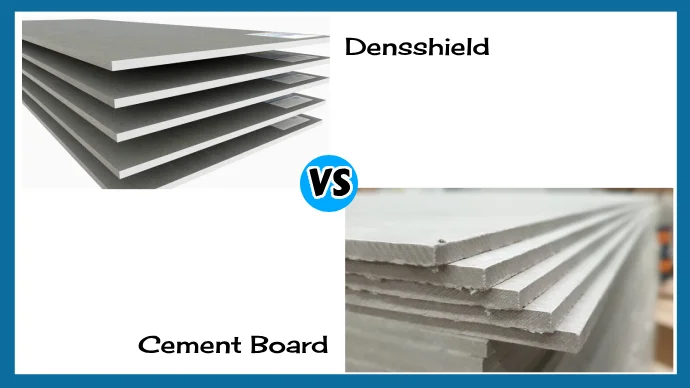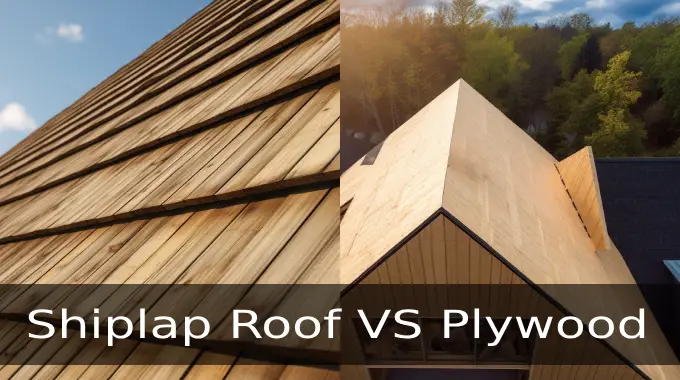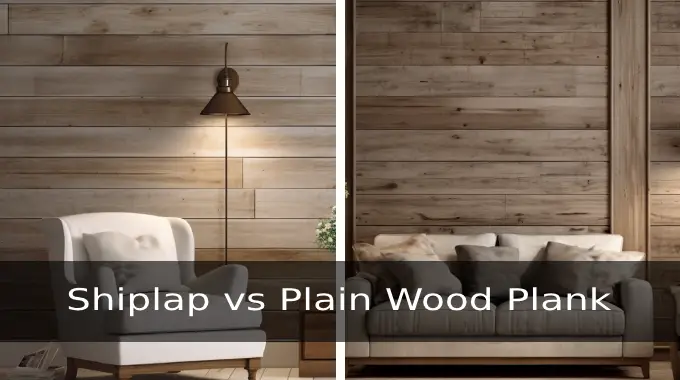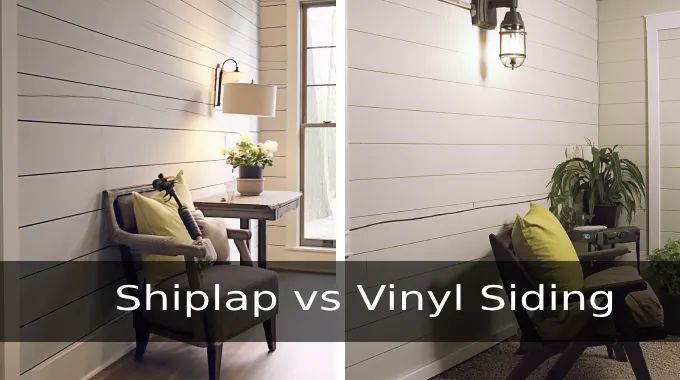Last Updated on September 16, 2023
Bathroom and shower installations require the right wall material. Two popular options are DensShield and cement board. Even though both materials are durable and moisture-resistant, they have some key differences.
DensShield boasts a moisture-resistant gypsum core enclosed in a fiberglass mat. It provides superior protection against water infiltration and mold growth.
Conversely, a cement board comprises a cementitious core fortified with reinforcing fibers and fillers, offering excellent durability.
The flexibility of each material also varies, as does the cost, making it essential to weigh all factors before making your choice. Let’s know all the possible differences between the DensShield and cement board.
Differences Between DensShield Vs Cement Board
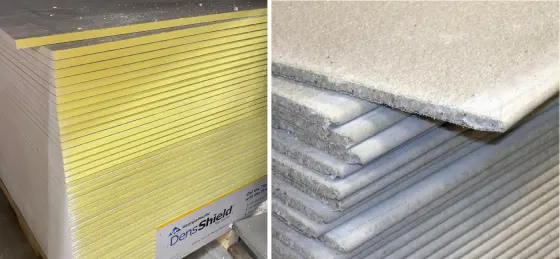
If you’re building or renovating a bathroom or other moisture-prone area, DensShield vs cement board is important to know. DensShield and cement board differ in the following ways:
1. Composition
Let’s take a closer look at what makes these two popular tile backer options unique in their makeup.
DensShield is composed of a gypsum core that’s encased in a fiberglass mat on both sides. Its core resists moisture penetration and mold growth, making it the perfect choice for water-prone areas.
In contrast, a cement board is typically made of a mixture of cement, reinforcing fibers, and fillers. The cementitious core of the cement board provides excellent strength and durability compared to other materials used as tile backers.
2. Moisture Resistance
You want to know which option is more moisture-resistant and will prevent water damage when installing tiles in your bathroom or shower.
While both DensShield and cement board are moisture-resistant, DensShield has the advantage of being specifically designed to resist moisture. The gypsum core is treated to resist moisture absorption, eliminating the need for a separate vapor barrier.
Conversely, the cement board absorbs some moisture and may require a separate waterproofing layer using Redgard or a vapor barrier for complete protection against moisture.
So, if you want a product that provides better protection against water damage without additional layers of protection, DensShield is the better choice.
3. Installation
Now it’s time to talk about how easily you can install these moisture-resistant options in your bathroom or shower.
DensShield is definitely the easier of the two to handle and install, as it’s lightweight and can be cut with a simple utility knife. You can then attach it to wall studs or ceiling joists with screws or nails and seal it with a joint compound.
Contrary to this, the cement board requires special cutting tools like a carbide-tipped scoring knife or power saw equipped with a masonry blade. It’s also heavier and more rigid than DensShield, making it more difficult to maneuver during installation.
Both options offer excellent moisture resistance when installed correctly with corrosion-resistant screws or nails and treated seams.
4. Flexibility
DensShield’s fiberglass mat reinforcement gives it some give and flexibility, making it easier to use on curved surfaces.
Conversely, the cement board is relatively rigid and better suited for straight and flat applications. If you plan to install your material onto a curved surface, DensShield is the better choice due to its increased flexibility.
5. Cost
When considering costs, it is worth noting that cement boards are generally more affordable than DensShield.
Due to DensShield’s moisture-resistant properties, it can prevent water damage and mold growth and save you money over time. But, if budget is a concern, a cement board may be a better option.
Is DensShield fireproof?
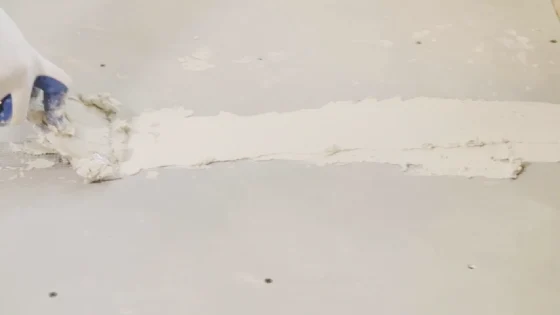
DensShield is not considered fireproof, but it is fire-rated for 1-hour- and 2-hour wall assemblies. A fire rating means a material can withstand fire for a certain amount of time without losing its structural integrity or causing flames to spread quickly.
In the case of DensShield, it has undergone testing and certification to demonstrate its ability to meet the fire resistance requirements of these specific wall assemblies.
The fire rating of DensShield indicates that it can effectively contain and slow down the progression of fire for the designated periods. It can help protect occupants and provide valuable evacuation or fire suppression time.
What is the fire rating for the cement board?
The cement board has a Class 1(A) fire/flame spread rating, which is the highest level achievable and has been tested extensively for fire resistance.
With cement board siding, your property has additional protection against fires. This makes it a desirable option for those who value fire safety.
Cement board siding is so effective at preventing the spread of flames that it’s widely used in areas with high wildfire risk.
Is DensShield mold-proof?
DensShield panels are not completely mold-proof but are an excellent option for preventing mold related issues.
They have undergone rigorous testing using the ASTM D3273 test method, ensuring their highest performance in terms of mold resistance.
DensShield panels offer exceptional mold resistance, especially in humid environments. You have to note that proper installation and maintenance are pivotal in ensuring the continued effectiveness of DensShield panels’ anti-mold properties.
Should I use 1/4 or 1/2 cement board for shower walls?
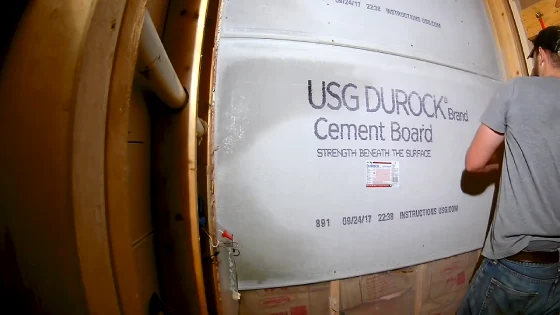
When choosing the appropriate cement board thickness for shower walls, opting for either 1/2 inch or 5/8 inch rather than 1/4 inch is highly recommended.
The extra thickness provided by the 1/2-inch or 5/8-inch cement board is crucial for spanning the studs and ensuring a sturdy foundation for the tile installation. Shower walls require a robust and durable substrate to withstand moisture and potential movement over time.
Using a thicker cement board enhances the overall strength and stability of the shower walls, minimizing the risk of tile cracks or failure.
Can you use DensShield for the tile backer?
You can use DensShield for tile backer applications. Because of its built-in moisture barrier, it’s perfect for high-moisture areas.
The board’s unique coating acts as a protective barrier, preventing moisture from seeping into the tile installation and the wall cavity or subfloor.
This feature makes DensShield an excellent option for areas prone to water exposure, such as bathrooms, showers, and kitchens.
Compare Densshield Vs Cement Board and Pick the Right One
While both materials are great for use in wet areas such as bathrooms and kitchens, they do have their own unique features that set them apart.
Cement board is known for its durability and fire resistance, making it a popular choice for commercial buildings or areas where fire safety is a concern.
On the other hand, DensShield boasts mold resistance and ease of installation, making it a great option for DIY projects or residential homes.
Consider factors such as fire safety, moisture resistance, ease of installation, and cost when deciding. With either material, you can rest assured that you’re choosing a reliable option for your project. Ultimately, the decision between DensShield and the cement board will depend on your specific needs and preferences.
